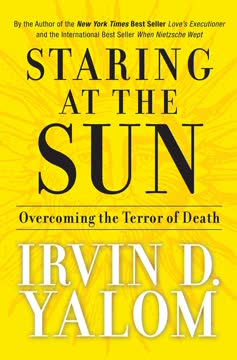重点摘要
1. 拥抱复杂性以对抗简化思维
“或许衡量一个人伟大的*佳标准是其承受痛苦的能力。”
思考是困难且复杂的。 它需要有意识地努力超越简单的、单一的逻辑,接受矛盾的真理。这个过程包括:
- 识别和挑战假设
- 避免刻板印象和标签化
- 发展灵活的反应系统
对抗简化思维需要:
- 承认面对复杂问题的痛苦
- 愿意探索多种观点
- 培养对不同观点的同理心和理解
通过拥抱复杂性,我们可以对世界有更细致入微的理解,并在个人和职业领域做出更好的决策。
2. 培养意识以促进个人和社会的成长
“意识在大脑中没有特定的位置。然而,若要区域化,它更集中在我们的额叶。”
扩展意识是至关重要的,对于个人和集体的进步。这包括:
- 发展自我意识和内省
- 认识到万物的相互关联
- 接受矛盾和对立
增加意识的好处:
- 提高解决问题的能力
- 增强对他人的同理心和理解
- 在复杂情况下做出更好的决策
培养意识需要持续的努力和面对自己及周围世界不舒服的真相的勇气。这是个人成长和社会进化的基础。
3. 学习和成长是终身的过程
“要成长,我们必须学会辨别自我毁灭和自我建设之间的区别。”
拥抱持续学习。 成长是一个持续的旅程,需要:
- 对新体验和新观点的开放态度
- 愿意挑战现有的信念和假设
- 致力于自我反省和个人发展
终身学习的关键方面:
- 认识到正规教育和非正规教育的价值
- 培养好奇心和成长心态
- 寻求多样的经验和观点
通过将生活视为一个持续的学习过程,我们可以适应不断变化的环境,培养韧性,并在个人和职业生活中找到更大的意义和满足感。
4. 以诚信导航个人生活选择
“聪明的自私之道在于辨别哪种痛苦或痛苦,特别是情感上的痛苦,是建设性的,哪种是非建设性的。”
做出有意识的选择。 个人诚信包括:
- 将行动与价值观对齐
- 对决策及其后果负责
- 平衡自我利益与对他人的考虑
个人决策中的关键考虑因素:
- 区分建设性和破坏性的痛苦
- 认识到选择对个人成长的影响
- 培养自我意识和情感智力
通过以诚信和正念处理个人生活选择,我们可以创造一个更真实和充实的生活,同时对周围的人产生积极的影响。
5. 在组织行为中培养文明
“文明是‘有意识地动机驱动的组织行为,服从于更高的权力’。”
促进道德行为。 组织中的文明需要:
- 对组织动态的有意识认识
- 致力于道德决策
- 认识到所有成员的相互关联
文明组织行为的关键要素:
- 清晰的沟通和对不同观点的尊重
- 平衡个人和集体的需求
- 培养责任感和责任心的文化
通过在组织环境中促进文明,我们可以创造更高效、和谐和道德基础的工作环境,造福个人和更大的社区。
6. 作为负责任的公民面对社会悖论
“全球思考,本地行动”是一个很好的指导原则。
拥抱社会复杂性。 负责任的公民行为包括:
- 认识到地方和全球问题的相互关联
- 平衡个人权利与集体责任
- 参与知情和深思熟虑的公民活动
负责任公民行为的关键方面:
- 发展对社会问题的细致理解
- 培养对不同观点的同理心
- 采取行动解决社区需求
通过面对社会悖论并接受我们作为负责任公民的角色,我们可以促进积极的社会变革,创造一个更公正和公平的世界。
7. 整合信仰与理性以接近“上帝的科学”
“我相信,恩典的根本治愈影响不仅通过如此极不可能的情况向我们显现,还通过启示向我们显现。”
调和灵性与理性。 接近“上帝的科学”包括:
- 认识到纯粹唯物主义世界观的局限性
- 接受灵性体验中的矛盾和奥秘
- 将科学探究与对超越现实的开放态度相结合
探索灵性的关键考虑因素:
- 培养个人的灵性体验和见解
- 学习多样的宗教和哲学传统
- 在怀疑与信仰之间保持平衡
通过整合信仰与理性,我们可以发展对现实的更全面理解,涵盖物质和精神层面,从而在生活中获得更大的个人成长和意义。
最后更新日期:
FAQ
What's The Road Less Traveled And Beyond about?
- Exploration of Spiritual Growth: The book examines spiritual growth in a modern world filled with anxiety, building on themes from Peck's earlier work, The Road Less Traveled.
- Three Main Parts: It is divided into sections that address the complexity of life, the importance of embracing challenges, and the journey toward greater consciousness.
- Integration of Psychology and Spirituality: Peck combines psychological insights with spiritual teachings, emphasizing that emotional maturity and spiritual growth are interconnected.
Why should I read The Road Less Traveled And Beyond?
- Insightful Perspective: The book offers profound insights into human existence, encouraging readers to confront fears and embrace personal growth.
- Practical Guidance: It provides practical advice on navigating personal choices, relationships, and societal issues, emphasizing critical thinking and conscious decision-making.
- Timeless Themes: Themes of love, responsibility, and the quest for meaning resonate with anyone seeking deeper understanding in their lives.
What are the key takeaways of The Road Less Traveled And Beyond?
- Embrace Complexity: Peck stresses the importance of embracing life's complexity rather than seeking simplistic answers.
- Consciousness and Choice: Increasing awareness allows for better decision-making, with consciousness preceding choice.
- The Role of Suffering: Suffering is seen as a necessary part of life that can lead to growth and understanding.
What are the best quotes from The Road Less Traveled And Beyond and what do they mean?
- "Life is difficult.": This sets the tone for the book, emphasizing that accepting life's challenges is crucial for growth.
- "The will to grow is in essence the same phenomenon as love.": It connects love and growth, suggesting that true love involves a commitment to development.
- "To think well is a radical activity.": Peck highlights the importance of critical thinking in navigating life's complexities.
How does M. Scott Peck define love in The Road Less Traveled And Beyond?
- Love as Extension: Defined as "the will to extend oneself for the purpose of nurturing one's own or another's spiritual growth."
- Complexity of Love: Explores the balance between self-love and love for others, emphasizing that one must value oneself to truly love others.
- Tough Love: Discusses making difficult choices for the benefit of others, sometimes requiring setting boundaries and making sacrifices.
What is the concept of "simplism" in The Road Less Traveled And Beyond?
- Definition of Simplism: Refers to the tendency to oversimplify complex issues, leading to misguided beliefs and actions.
- Impact on Society: Simplism contributes to societal problems like prejudice and intolerance by promoting stereotypes and assumptions.
- Crusade Against Simplism: Peck urges readers to embrace complexity and engage in thoughtful analysis to overcome simplism.
How does The Road Less Traveled And Beyond address the concept of consciousness?
- Consciousness as Awareness: Defined as the awareness of one's thoughts and feelings, crucial for personal growth.
- Levels of Consciousness: Discusses different levels, from basic awareness to deeper self-understanding, allowing for informed choices.
- Connection to Spirituality: Links consciousness to spirituality, suggesting that greater awareness leads to a closer relationship with the divine.
What role does suffering play in personal growth according to The Road Less Traveled And Beyond?
- Suffering as a Teacher: Suffering is integral to life and can lead to significant personal growth.
- Existential vs. Neurotic Suffering: Distinguishes between necessary existential suffering and self-imposed neurotic suffering.
- Embracing Pain: Encourages embracing suffering as a pathway to deeper understanding and resilience.
What is the concept of grace in The Road Less Traveled And Beyond?
- Definition of Grace: Described as "the gift of finding valuable or agreeable things not sought for," an unearned blessing.
- Connection to Gratitude: Recognizing grace leads to gratitude, fostering happiness and positive contributions to the world.
- Role in Personal Growth: Experiencing grace is essential for spiritual development, encouraging openness to the unexpected.
How does The Road Less Traveled And Beyond address the concept of community?
- Community as Healing: True community is essential for healing and personal growth, fostering an environment where individuals can thrive.
- Stages of Community Development: Outlines stages from pseudocommunity to true community, representing different levels of understanding and connection.
- Importance of Communication: Effective communication is crucial for building community, encouraging open dialogue and embracing differences.
What are the stages of spiritual growth described in The Road Less Traveled And Beyond?
- Stage I: Chaotic, Antisocial: Characterized by a lack of principles and disconnection from community.
- Stage II: Formal, Institutional: Involves adherence to established beliefs without questioning, offering structure but lacking depth.
- Stage III: Skeptic, Individual: Focuses on questioning traditional beliefs, often adopting a secular worldview.
- Stage IV: Mystical, Communal: Represents a mature understanding of spirituality, embracing mystery and interconnectedness.
How does The Road Less Traveled And Beyond define the relationship between the ego and the soul?
- Ego as the Governing Part: Governs self-image and behavior, often focused on external validation.
- Soul as the Core of Being: Represents the true essence and potential for growth, deeper than the ego.
- Interaction Between Ego and Soul: A healthy spiritual life involves nurturing the soul while allowing the ego to evolve positively.
评论
《少有人走的路及其延续》获得了褒贬不一的评价,平均评分为4.12/5。许多读者认为这本书富有洞见且改变人生,赞扬派克在精神成长、纪律和爱的方面的观点。一些人欣赏他将心理学与灵性结合的方式,而另一些人则批评他过于宗教化和自我引用。正面评价的读者强调了书中关于个人发展和应对生活挑战的实用建议。批评者认为书中某些方面缺乏深度且内容重复。总体而言,读者重视派克对人类行为和精神成长的独特见解。


















